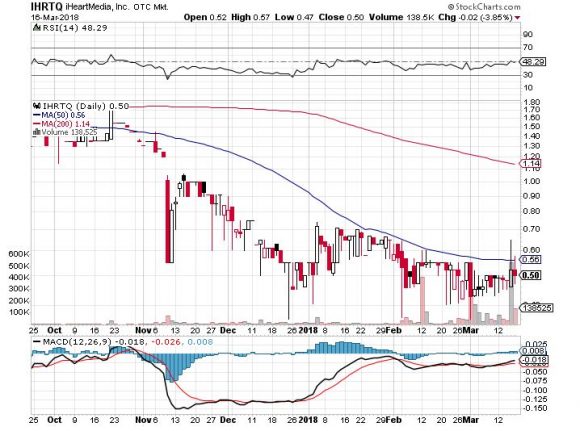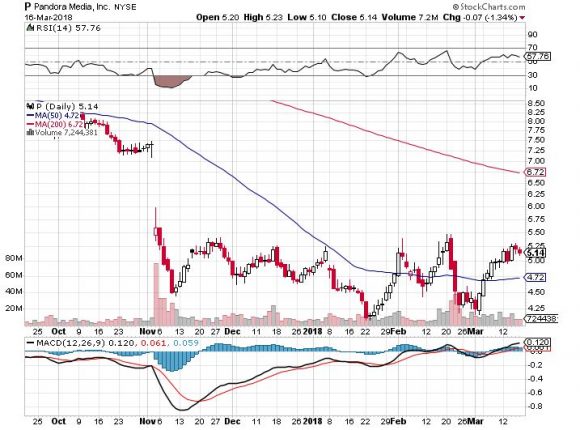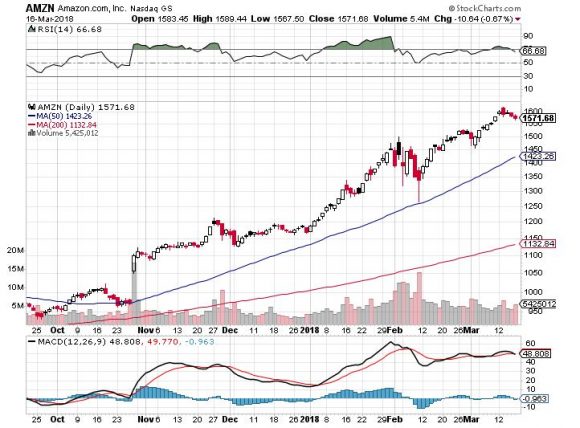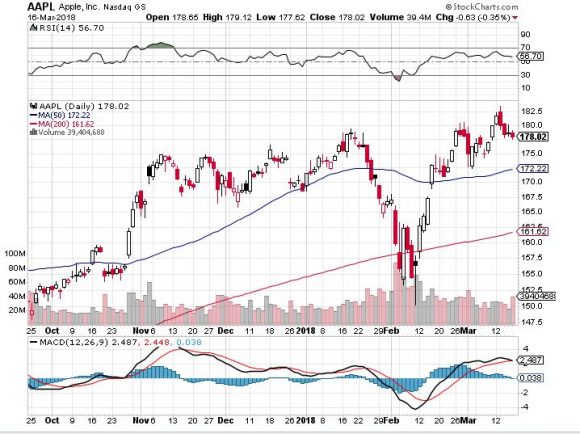Mad Hedge Technology Alerts!
Mad Hedge Technology Letter
March 19, 2018
Fiat Lux
Featured Trade:
(DON'T BUY THE SPOTIFY IPO ON PAIN OF DEATH)
(IHRTQ), (AMZN), (FB), (GOOGL), (P)
The music business has long been a graveyard for new startups and their business models, and it looks like we are about to get another victim.
Investors should avoid the upcoming Spotify initial public offering (IPO) as if it were the Black Plague.
Streaming live music is an impractical business and makes it impossible to turn a profit.
The model is a gift to consumers because unlimited music for $9.99 per month is a steal, and the service is free if users can endure annoying ads.
Apple music (AAPL) and Amazon prime music (AMZN) complicate Spotify's future because competing with Goliath is a guaranteed money loser.
These two FANGs also have the luxury of not worrying about losing money in music streaming, as it's just one miniscule slice of their overall business.
Apple music is second in market share with 37 million subscribers. However, Apple offers a multitude of integrated services, and its synergistic end products far surpass Spotify's music-only business.
Recent legislation has not cooperated either.
The Copyright Royalty Board (CRB) elevated royalty payments for songwriters from 10.5 percent to 15.1 percent of total revenue constituting a 43.8 percent increase.
The aftermath will stoke more operational losses for Spotify.
The modification is the largest in CRB increase in history and is a big win for the music industry against tech.
The 71 million Spotify subscribers are indeed formidable, but history is cluttered with examples of music streaming platforms gone astray.
Internet radio firm iHeartRadio (IHRTQ), mired in $15 billion of crushing debt, is the latest on the verge of bankruptcy.
Let's look at the only pure music streaming stock out there in Pandora (P): The original architect of this industry is a dud. Pandora's total subscribers peaked in Q4 2014 along with its share price at $37.42 and has taken investors on a downhill toboggan ride to $5 today.
Dispensing the former CEO and changing direction with new management were obvious considering Pandora is a bad business model. But there is only so much the board of directors with an inferior business model can do.
Spotify's most recently reported loss more than doubled YOY as the exorbitant royalty costs ate into gross margins. Compare Spotify with Facebook (FB), which pays nothing for its content and has terrific growth margins.
Spotify's royalty and distribution costs to the music industry amounts to 79% of total revenue. Ouch! In brief, it's incredibly expensive to corral together new users into the Spotify ecosystem.
Spotify has hyped up scale as its one-way ticket to profits, but scale is FANG's secret weapon along with unlimited cash flow to spruce up any desirable business. Apple and Amazon could easily target Spotify and dismantle their user ship.
To reach the scale desired, Spotify will have to really dig deep and splurge on adding incremental subscribers. This type of strategy is futile against deep pocketed Apple and Amazon.
YouTube, owned by Google (GOOGL), is the last part of the equation where music is completely free, and if you download an ad-blocker application, ads are removed as well.
In 2018, there is no reason to ever pay for music and that's why YouTube enjoys 1 billion monthly users. Users have voted with their wallets.
Spoiled Millennials, having grown up with Napster, expect and demand a world of downloadable free music.
Spotify's unconventional decision to directly list is also grounds to abstain.
Usually a company offers shares to the market to raise cash. Spotify isn't raising any cash, and the company must raise cash at some point. Any share dilution will occur after stock purchases, not before as in a normal IPO.
In a normal IPO banks normally put up their own capital to close the deal. They are responsible to make a market for the new shares once it is priced. However, in an unusual IPO process, banks have been completely shut out of the Spotify deal, which could result in a wave of extreme volatility on the first day.
Banks also "Build a book" to solicit interest from potential investors at specific prices leading up to the IPO day. Investors miffed at pricing will give an incentive to wait out the madness. The end result could be a disaster for this IPO.
Shareholders usually are subject to a lockup period to limit the potential shares offered for sale by "flippers." This new unconventional process allows investors to unload all Spotify shares anytime, which increases the downside risk on IPO day. This irregular method will lack a stable set of shareholders who buy and wait out the initial frenetic price movement.
The lack of a road show will harbor more confusion about the inner workings of the business.
Spotify is gambling that its brand is widespread enough to stir up a risky appetite, but this strategy could blow up in its face.
There is one way to save Spotify. Using an injection of funds to reinvest into enhancing the platform to gain more subscribers. Subscriber growth must outperform royalty costs on a relative basis or it never will recoup the losses. Ultimately, it's an insufficient endeavor because anything Spotify can do, the FANGs can do better.
The long-lasting benefit of making it to FANG status is that FANGs can disrupt their competition better than anyone since they are the Original Disruptors.
It makes no sense for Spotify to skimp on the IPO process just to circumvent paying investment bankers their usual excessive fees. The wild card in this experiment is that an unequivocal IPO success could spell the imminent doom of the investment banking business.
A smooth IPO would mobilize Uber, which has a similar loss-making, user growth sensitive business to follow in Spotify's path and bypass the traditional route.
In one day, big banks could be condemned to the graveyard of tech victims in a blink of an eye.
Spotify could be a great buy after the dust settles, but it would be a mistake to get caught up in the pandemonium that will ensue the day Spotify goes public.
I did the same with Tesla (TSLA) many years ago, only buying after the IPO flopped. It turned out to be a stroke of genius.
Mad Hedge Technology Letter
March 16, 2018
Fiat Lux
Featured Trade:
(HOW ARTIFICIAL INTELLIGENCE WILL ENHANCE OR DESTROY YOUR PORTFOLIO)
(TSLA), (AMZN), (FB)






